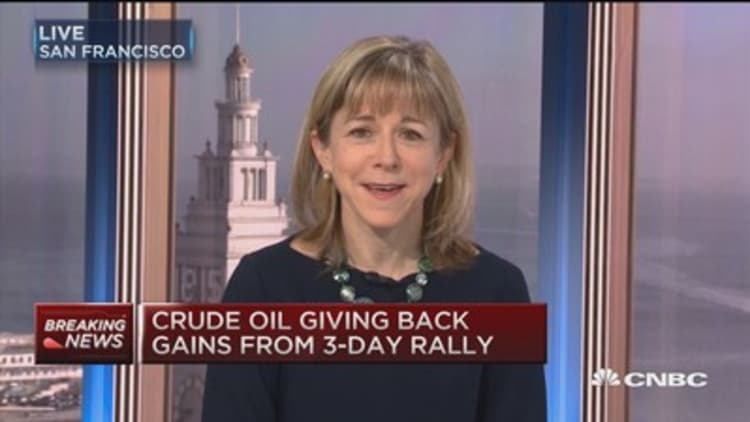Over the past year, the unicorn club—a Silicon Valley moniker for start-ups with a valuation of $1 billion or more—has expanded at an unprecedented rate. The second quarter of 2015 was the sixth-consecutive quarter of more than $10 billion of venture capital invested in a single quarter, according to the MoneyTree report, a collaboration between Thomson Reuters, Pricewaterhousecoopers and the National Venture Capital Association.
But how do entrepreneurs, armed with little more than an idea and a prototype, get their hands on large sums of cash? Through a complex and rapidly growing network of angel investors, venture capitalists and institutional investors.
Here's how it works: Bootstrapped companies—funded out of the founder's pockets—start by seeking out early-stage investments, and move toward late-stage investments over time. As the company grows and evolves, the type of investors, and the metrics that matter to investors, evolve too, said Tyler Willis.
Willis teaches a class in which he mentors aspiring angel investors, who donate small amounts of their own wealth (usually less than $50,000) into very early-stage start-ups. When entrepreneurs pitch Willis with their "deck"—a presentation that pitches their company to potential investors—he's looking to be convinced that a company will get what he calls "traction."
For him, that could be a really great team that's done well in the past, social proof that other reputable investors believe in the company, a product that would appeal to consumers, or some sort of "proof of concept," showing that the company has been able to execute and grow a key metric, like number of users, on a small scale.
But early on, an entrepreneur may have a very limited scope to prove himself. More than anything, an angel investor makes a bet on the person making the pitch. That was certainly the experience of Ajay Yadav, founder of roommate-matching app Roomi, which just received its second round of early-stage or "seed" funding.
"Initially when you have a dream, you want people passionate about your company and usually that's angels," Yadav said. "They bet on your company when the risk is very high. It's small checks, but they will be your advocates. They will be proud to back you up when you become big."

After an entrepreneur has some cash to fuel their idea, future investors look at how long a company made the money last, known as "burn rate." Successfully hitting promised milestones with money to spare is key to reaching the more formalized rounds of funding with venture capital (VC) firms, said Yadav, because good angel investors will typically help get you in the door at a firm when they've been sold on your results.
"As you go to VCs, they are very structured," Yadav said. "You always over-deliver. They will analyze all your choices, culture, execution.... VCs have processes of diligence and require a bunch of meetings."
While angel investors may have a portfolio with 20 to 30 companies, expecting one to pay off big, the checks are much bigger and stakes are much higher for venture capital firms, said Gil Penchina, former CEO of Wikia and prolific investor.
Read More Venture capital investment hits an almost 15-year high
That's because while early angel or "seed" rounds are essentially loans or debt, early venture capital rounds (labeled A through C to denote early or later stages) are usually equity rounds. That means that investors, to become stakeholders, are looking to get a return of at least 10 times their investment as the company grows, Willis said.
As a result, the company and the VC must agree on how much a company is worth, to decide how much each share of the company will cost. To back up their argument for a high valuation, an entrepreneur relies on key industry-recognized statistics such as a growing base monthly active users on an app, or a low cost of new customer acquisition for a service, according to VC firm Andreesen Horowitz.
The start-up had better be ready to back up its valuation, said Bryan Leach, CEO of rebate app Ibotta, which just finished a series B funding round. Leach said investors called his customers, ran background checks on his employees, asked his competitors about him, and even hired consulting firms or commissioned national surveys on his company to see if shoppers had heard of Ibotta.
The first negotiation is especially important because once a lead venture capitalist has signed on, his or her contract will dictate the terms that other investors agree to over the three months that typically constitute a funding round.
By the time a company reaches later stages of funding (Series C, D or E rounds), investors start holding companies to the same standards you see on Wall Street—mainly, earnings and revenue, said Penchina.
"Early data is rarely predictive of long-term success," Penchina said. "Later stages are a lot more like public markets."

Penchina recently started a series of syndicates, similar to mutual funds for data company AngelList. Investors in syndicates can buy shares of a portfolio of high-growth companies, that average between $3 million and $4 million in valuation on AngelList. With large, well-known companies like Uber remaining in the private start-up sphere, retail investors, corporations and institutions alike have been lured to the start-up scene.
Companies like American Express, Google and Microsoft now fund venture capital firms, as do large banks such as Wells Fargo. And new rules allow not only accredited investors, but also retail investors, to invest small amounts in start-ups through crowdfunding.
With "tourists" vying for the same shares as traditional firms, it's driven prices up in Silicon Valley, Kate Mitchell, Scale Ventures co-founder and National Venture Capital Association board member, told CNBC earlier this month.
"We've found a lot of investors in the public market have been driven over to the private market to get growth," Mitchell said.





.jpg?v=1532564668&w=160&h=90)



